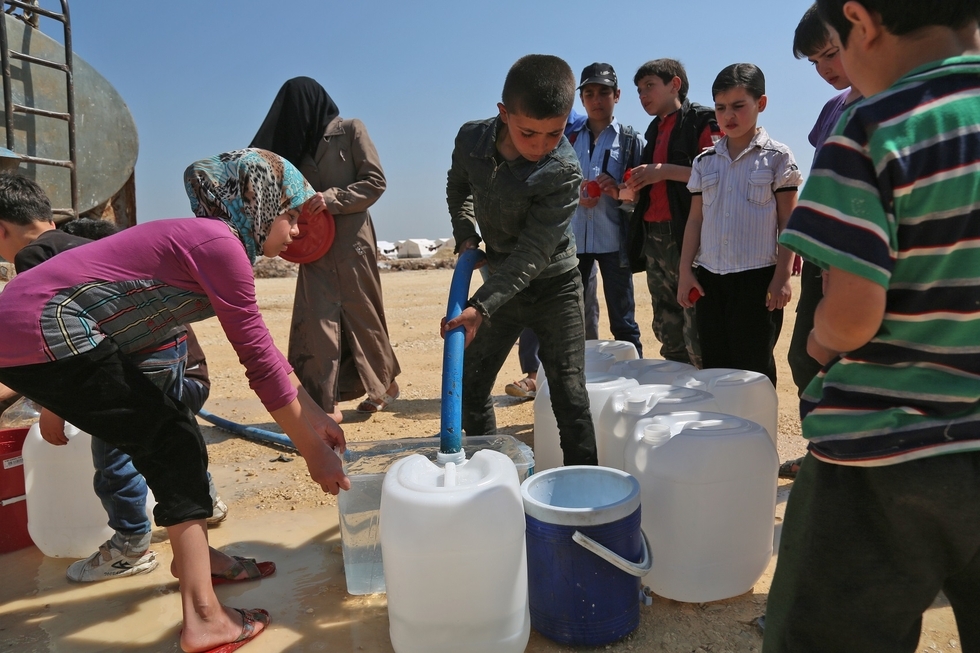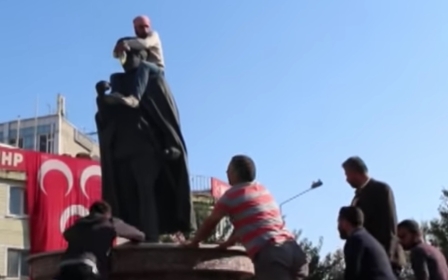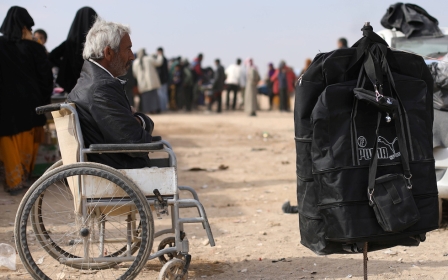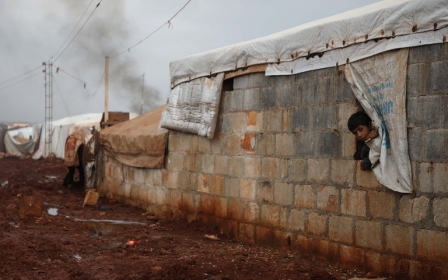Up to 250,000 Syrian refugees may return home in 2019: UNHCR

Up to 250,000 Syrian refugees could return to their devastated homeland in 2019, but persistent questions around documentation, forced military conscription and property ownership among the returnees must still be resolved, the UN refugee agency (UNHCR) said on Tuesday.
About 5.6 million Syrian refugees remain in neighbouring countries, namely Turkey, Lebanon, Jordan, Egypt and Iraq, according to UNHCR’s director for the Middle East and North Africa, Amin Awad.
That figure includes one million Syrian children born abroad and whose foreign birth certificates the Syrian government has agreed to recognise, Awad said on Tuesday.
"As the situation in Syria improves some of these refugees are making the journey home," he said during a news briefing in Geneva.
"We are forecasting, in what we call phase one, up to 250,000 Syrians go back in 2019. That figure can go up and down according to the pace with which we are working and removing these obstacles to return."
UNHCR said that 117,000 refugees have returned to Syria since 2015, including 37,000 that have gone back so far this year.
"These are organised returns, completely voluntary, in safety ... and of course with UNHCR involvement," Awad said.
"Now, by and large, the war has ended. We have a few pockets [of hostilities], including Idlib, as you know that there is a negotiated ceasefire and a de-escalation zone," he said.
Syrian government and rebel forces reached a ceasefire agreement in Idlib, in northwestern Syria, earlier this autumn as part of an international effort to protect the region's three million inhabitants and stave off a government offensive there. Sporadic shelling and clashes have rocked the area in recent weeks, however.
Obstacles to overcome
On Tuesday, Awad said that issues relating to forced conscription into the Syrian army, and questions around the fate of Syrian refugees who deserted the army when they left the country, are hampering efforts to have them return to Syria.
The returnees also face uncertainty when it comes to their physical safety, as large swathes of Syria are littered in unexploded ordinance, including in places where the fighting has stopped.
Other obstacles include a lack of documentation confirming the refugees' identity and property ownership in Syria, as well as a dire lack of education, healthcare and sanitation services in the places to which they plan to return, Awad said.
UNHCR also appealed for $5.5bn on Tuesday to help neighbouring countries provide health, water, sanitation, food, education, and psycho-social support to Syrian refugees.
"Their living conditions have deteriorated as their existence in exile prolongs. They have been borrowing money, they are indebted and ...70 to 80 percent of them are living below the poverty line in their host communities or countries," Awad said.
"We are asking donors to stay the course."
New MEE newsletter: Jerusalem Dispatch
Sign up to get the latest insights and analysis on Israel-Palestine, alongside Turkey Unpacked and other MEE newsletters
Middle East Eye delivers independent and unrivalled coverage and analysis of the Middle East, North Africa and beyond. To learn more about republishing this content and the associated fees, please fill out this form. More about MEE can be found here.




